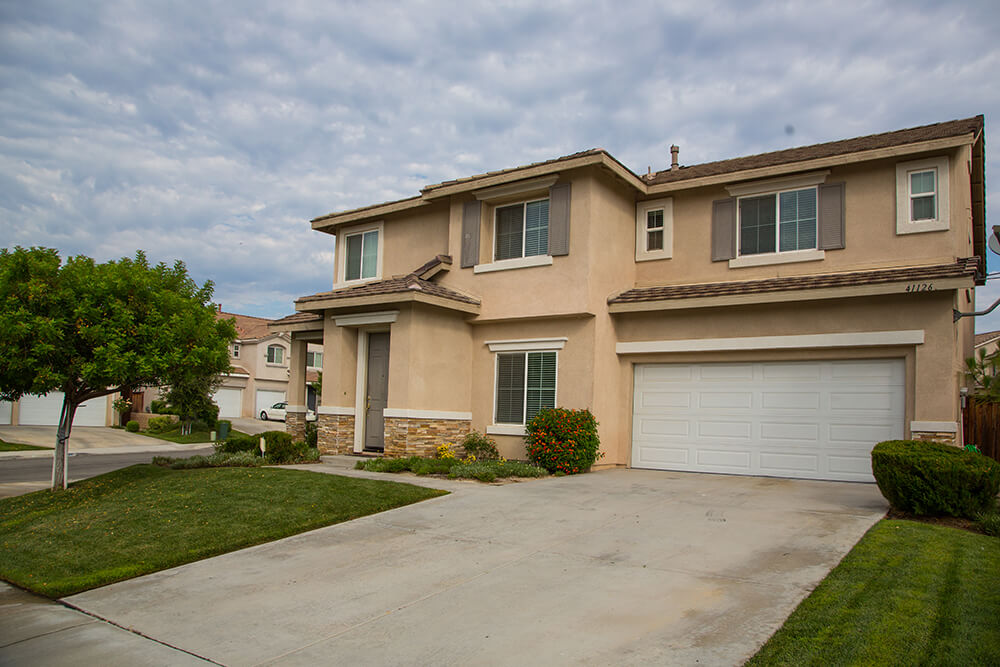 Sober living homes are designed to provide stable housing and support for individuals recovering from a substance use disorder. Typically, residents of these facilities have recently completed a formal withdrawal management program or an inpatient comprehensive treatment program, and they are looking to establish themselves as they begin their transition into a drug- and alcohol-free lifestyle. A sober living home allows the individual to transition from a very structured and restrictive inpatient rehabilitation program to a setting that still provides structure but also allows the individual some freedom and responsibility.
Sober living homes are designed to provide stable housing and support for individuals recovering from a substance use disorder. Typically, residents of these facilities have recently completed a formal withdrawal management program or an inpatient comprehensive treatment program, and they are looking to establish themselves as they begin their transition into a drug- and alcohol-free lifestyle. A sober living home allows the individual to transition from a very structured and restrictive inpatient rehabilitation program to a setting that still provides structure but also allows the individual some freedom and responsibility.
Sober living homes have a number of costs and fees associated with them, and residents are expected to be responsible and cover the costs. The individual is typically required to pay rent, cover the cost of their food, pay for their transportation, and provide their own clothing and toiletries. Rent in these facilities is typically modest and affordable unless it is a luxury sober living home. However, in many cases, individuals leaving inpatient rehabilitation programs do not have jobs to return to and do not have sources of income.
Many of these individuals do not have significant savings, but some may have private or governmental insurance plans. Many people wonder if their insurance will cover the cost of a sober living home. Most private insurance companies will not cover the cost of a sober living home. The key term here is most, and there are number of reasons and potential exceptions to this answer.
First, sober living homes are not treatment facilities. For the most part, they do not deliver professional treatment services as part of their package. They simply provide a transitional place to live while the person gets treatment and begins to adjust to a lifetime of recovery. Insurance services typically cover the cost of treatment, and with inpatient rehabilitation, the cost of staying in the facility is part of the treatment package. This is not the case in a sober living facility.
 Even though some sober living facilities have onsite 12-Step programs, participation in these groups is not defined as a formal treatment service. The individuals who run 12-Step programs are typically not trained and licensed mental health treatment providers.
Even though some sober living facilities have onsite 12-Step programs, participation in these groups is not defined as a formal treatment service. The individuals who run 12-Step programs are typically not trained and licensed mental health treatment providers.
There remains a lack of national standards regarding how these facilities are maintained and the types of services they should provide. The National Alliance of Recovery Residences (NARR) is a nonprofit organization that attempts to establish recommendations for sober living homes and other similar facilities that are often termed halfway houses or three-quarter houses; all of these facilities are given the title recovery residences. However, many of the residences are governed by a number of state recommendations, and these facilities do not formally qualify as treatment centers under these stipulations.
However, the online journal Addiction Professional reported in 2013 that some of these residences are moving to delivering clinical services in order to qualify as treatment centers and to accept certain insurance plans. It appears that this situation differs from state to state and from facility to facility. You should check with the specific recovery residence and your particular insurance plan regarding whether or not private insurance coverage is a possibility.
There is some chatter online that some recovery residences are billing insurance companies fraudulently. It is important to ascertain whether or not the particular residence is covered by private insurance by contacting your insurance representative directly or having a trusted friend or relative do so. This can ensure that you will not attend a recovery residence thinking that insurance is covering the cost and then later receive a large bill for the services.
Part of the utility of transitioning from inpatient rehabilitation to a recovery residence is the development of accountability and responsibility. This means accepting responsibility for paying bills or finding ways to get them paid. Thus, an individual who is transitioning from an inpatient rehabilitation program to a recovery residence should check with their insurance company regarding the type of benefits and coverage they have and discuss this issue with their perspective recovery residence. Even though it is safe to say that in most cases private insurances will not cover the cost of a recovery residence, there may be specific exceptions to this, depending on the type of policy. In some cases, a person may get approval for partial payment.
It is up to the person attending the facility to understand what is expected of them monetarily and to adhere to the policies of the facility and their insurance company regarding payment. While many private insurance companies will not cover the cost of rent, food, and other aspects of staying in a sober living home, individuals in recovery residences are often subject to random drug testing, and these procedures should be covered by private insurance. It is important to understand what will be covered and what will not be covered before making a commitment.
Some Ways to Finance the Cost of Sober Living
If you are not able to use your insurance to cover the cost of a sober living facility or recovery residence, you can still find support to cover these costs. Some of the alternatives or strategies to investigate include:
- Physician recommendations: Insurance companies are more likely to pay for particular treatment services if they are recommended by a physician. Getting a physician to recommend that an individual transition from inpatient rehab to a recovery residence may lead to the insurance company covering the costs. It certainly does not hurt to ask your rehab physician to make a formal written treatment recommendation and submit it to your insurance company.
- Case managers: A professional case manager may help to facilitate the process of getting accepted or denied by insurance. Case managers can also canvass prospective recovery residences, covering groundwork the person in recovery is not prepared to handle.
- Government assistance: Often, individuals entering recovery are classified as homeless individuals. It may be possible to get government assistance in the form of disability insurance or government grants to cover the cost of a sober living home. Government assistance may be contingent on a number of issues that are too complicated and personalized to list here. Resources to access include:
- HUD: Regarding the potential to qualify as homeless and receive assistance, check with the Homeless Prevention and Rapid Re-homing Agency to see if one qualifies for assistance.
- Disability: Check with the Social Security Administration regarding eligibility for disability payments.
- Grants: Check with the Substance Abuse and Mental Health Services Administration (SAMHSA) regarding government grants that may be applicable.
- Unemployment compensation: If an individual was working prior to entering inpatient rehab and qualifies for unemployment compensation, this can help to cover the cost of staying in a sober living home. Check with your state government website to determine if you qualify.
- Some people may qualify for food stamps, Medicaid, and other governmental supplements. Check your state government’s website for more information.
- Credit/financing programs: You may be able to borrow money from a bank or other financial institution to cover the cost of a sober living home, or you may be able to put rent on your credit card. In some cases, you may be able to work out a deal with the recovery residence to set up a payment program that is affordable. Some individuals may be able to borrow the money from friends or relatives to cover the costs.
- Social media: With the popularity of social media, some are able to raise money through a crowdfunding program online.
- Free sober living homes: Some sober living homes are operated by charitable organizations and may be free, have periods where there is no charge (e.g., the first month), or offer assistance obtaining financial aid.
- Employment: Many sober living homes require that residents be involved in some productive activity, such as being employed or doing volunteer work. It is possible in some cases to get a job at a recovery residence and literally work your way through the program. There are number of benefits to this approach, including the development of responsibility and accountability. Some recovery residences may be able to assist residents in getting outside jobs that can help them pay for the cost of their stay.
The primary goal of a sober living home is to offer a structured transitional living situation for residents and to help them establish personal responsibility and accountability. If a person is going to transition into a recovery residence, it is generally up to that person to make sure the costs are covered. While insurance can help in rare cases, residents generally need to find other means to cover their costs.
